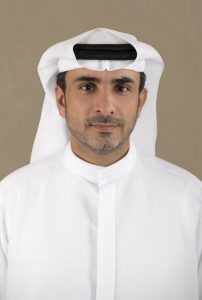Department of Transport rolls out ambitious plans for 2030
A series of key infrastructure improvements to transform the future of transport in Abu Dhabi were outlined by the Department of Transport – Abu Dhabi (DoT) before a global audience at the World Road Congress Abu Dhabi 2019.

Thousands of road transport professionals were offered insights into how Abu Dhabi has built a world-class infrastructure as well as preparing for the future when the UAE capital hosted the World Road Congress (WRC) between 6 and 10 October.
As part of the Department of Transport’s ambitious plans for 2030, work is underway to reduce emissions, improve safety and ease congestion with more flexible infrastructure that meet the demands of growing population.
Among the planned projects that are due to be completed by 2030 is the Mid Island Expressway while the widening of the E16 road from Al Ain to Khalifa Port will significantly improve the existing network.
A key focus will be improving accessibility to the main transport hubs to ensure Abu Dhabi remains a competitive global destination for trade and business. As part of the expansion of Abu Dhabi International Airport, major upgrades are underway to the area’s roads network and interchanges ahead of the opening of the Midfield Terminal complex.
Etihad Rail
In addition, Khalifa Port is undergoing expansion and the port’s connectivity will be further enhanced with the introduction of the Etihad Rail network. Funded by the UAE government, it will significantly boost the country’s economy and give businesses across the entire nation the edge in key markets.
With the Etihad Rail project already underway, commuters will have even more options to travel to other emirates and neighbouring nations, while there are studies to explore advanced technologies for developing future transport modes in Abu Dhabi.
Other transport improvements include the recent completion of the widening of one of Abu Dhabi’s busiest roads, the E10 highway, enabling better access from Abu Dhabi to other emirates.
Furthermore, the construction of new projects such as the new tunnel at Zayed Port, Umm Lafina road and the causeway project will provide extra capacity to the road networks and ease congestion in accessing Reem Island and travelling on Sheikh Zayed Road.
In the western Al Gharabiya region, commuting has been boosted with the completion of the Sheikh Khalifa International Highway (E11) reconstruction project from the Mafraq Interchange in Abu Dhabi right up to Al Guwaifat at the border of Saudi Arabia. This has improved the network capacity and accessibility to neighbouring areas as well enhancing and improving traffic safety.
Addressing Environmental Concerns
A series of environmentally friendly initiatives are also underway, including a major project to replace thousands of streetlamps and traffic signals with sustainable and energy-efficient LED lights.
“As the host of the prestigious World Road Congress, being held in the Middle East for the first time this year, Abu Dhabi has a unique opportunity to showcase its future vision to the world and mark the UAE capital out as a world-leader in urban planning and infrastructure development,” commented Khalifa Almazrouei, Undersecretary of Department of Transport, Abu Dhabi.
Under the theme of ‘Connecting Cultures, Enabling Economies’, the World Road Congress Abu Dhabi 2019 was hosted by the DoT and World Road Association (PIARC).
Future projects, trends and developments in the fields of road building, infrastructure and transport were the core of discussions at the World Road Congress, with global experts invited to take part in discussions and debates.
